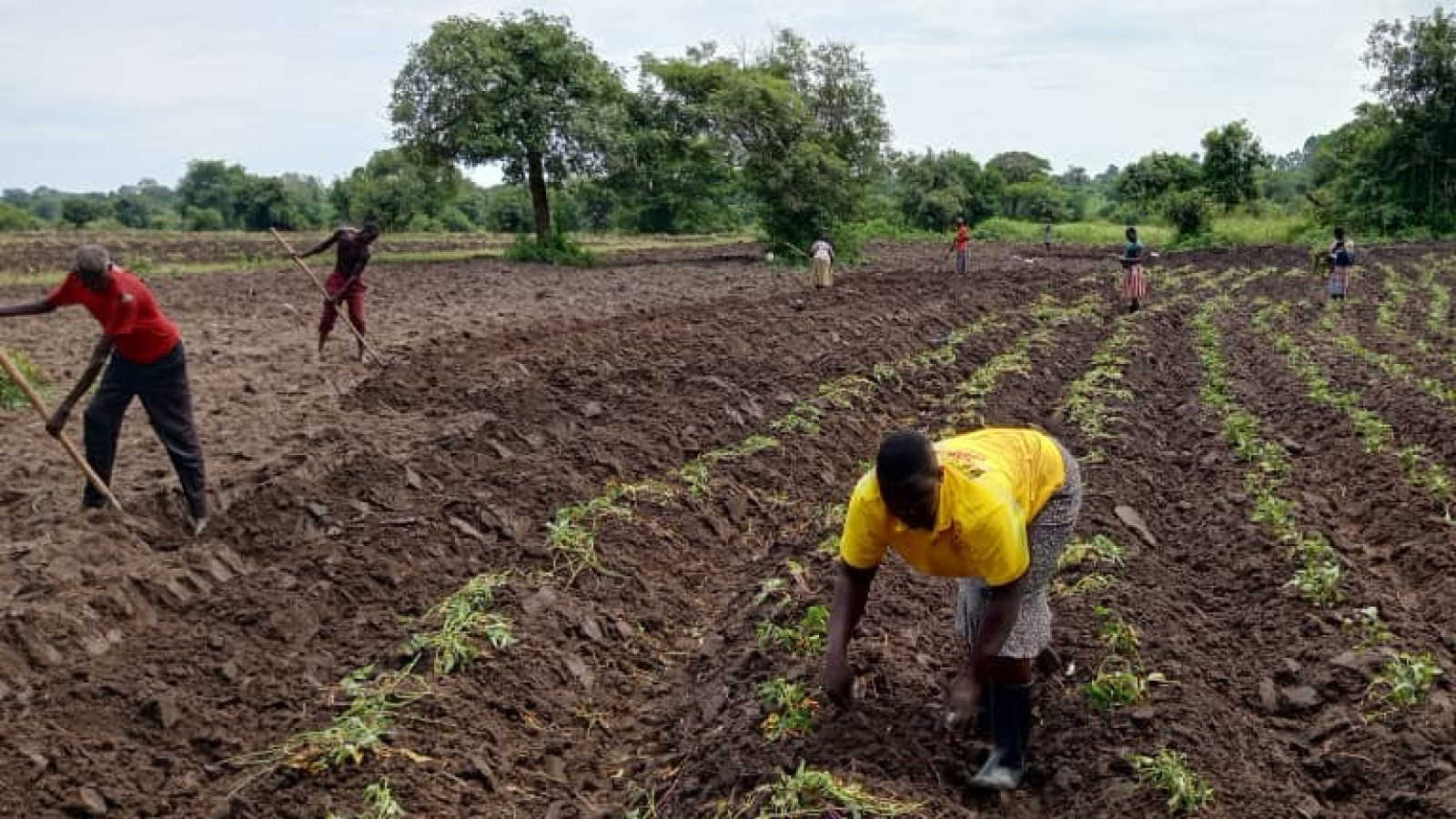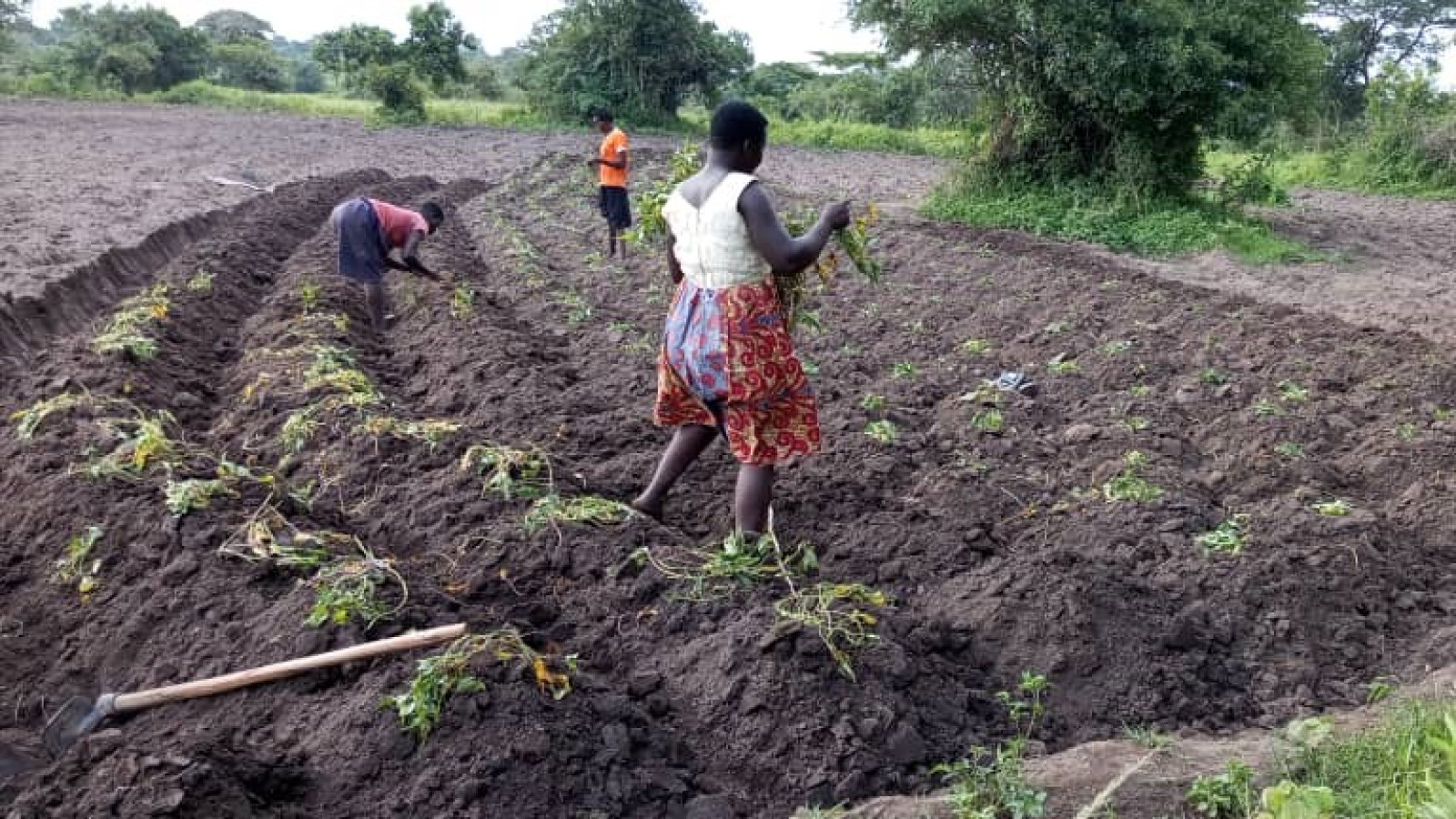The Alito Agricultural College recently had a visit from Professor Alex from Ngara University to help them assess land that was prepared for potato planting. He was very pleased to see the lagoons that had been created as a key part of the project. It was his recommendation to produce ‘green compost’ to add organic matter to the fields, so the team have been composting goat/chicken dung with green waste from the college kitchen and farm waste, to good effect.
They commenced field preparations in early June to break down weeds and ‘soften’ the soil for planting. However, based on last year’s disappointing potato crop, they wanted to secure local seed potato and try other varieties rather than Rwanegume.
Despite contact with the National Potato Council and networking through Professor Alex, they were unable to find seed potato of a suitable quality for the trial. Not wishing to waste the land preparation, they took the decision to plant sweet potatoes in the plot and were able to get 11 bags of seedling vines to plant.
In May the school and some of the other buildings were connected to ‘mains’ electricity and whilst it can be unreliable, it has taken the strain off the dependence on the college’s ageing solar powered system.
Other key projects for 2025/26 will focus on two main areas:
1. Partial swapping of new for old batteries in the solar system, as these are now approaching eight years old and lose charge quickly.
2. Increasing farm diversity and income security by establishing a small coffee plantation. Whilst coffee trees usually take two years to produce beans, the Ugandan market demand is strong and secure. It will also allow some of the poorer quality land to be used productively.
The irrigation lagoons will allow more certainty of crop survival to maturity, which means they can look further ahead to other crops too.

